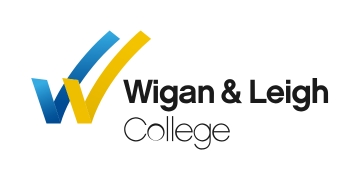A learner-driven revolution in education is unfolding around the world, says Rod Bristow, as Pearson launches its inaugural Global Learner Survey.
The new study captures the opinions of learners worldwide, but are we ready to hear them?
Technology, automation, globalisation and an unpredictable political environment are affecting everything about our world – especially work and education.
To meet the demands of this new world of work and a fast-changing economy, learners tell us they are in turn demanding more from traditional institutions that have shaped learning for generations, and are looking for a different approach to education that is more practical, hands-on and skillsbased to help prepare them for the changing environment.
Pearson conducted a survey of over 11,000 learners in 19 countries across the world, including both developed and emerging markets. It provided learners with the opportunity to voice their opinions on the current and future state of education. We believe it is the first time the collective voice of global learners on such a wide range of education topics has been heard.
There is a huge opportunity here for FE colleges to grow and evolve
Around the world, learners still place a great deal of faith in education to help them achieve success, but the way they are obtaining an education is changing, and it is all because the new talent economy has arrived with gig jobs, unconventional career paths and tech disruption.
This opens a new universe of opportunities to help people learn in more accessible and affordable ways, and with better outcomes. The learners in our survey embrace technology and online learning. They want more career-focused education, soft-skills training and bite-sized learning across the course of their lifetime.
Virtual learning, micro and stackable credentials, and on-demand learning for everyone can help meet the needs of today’s sophisticated learner. Governments, educational institutions, employers and social and tech disruptors are uniquely positioned to apply their vast and unique expertise to help drive this change.
The smartest of these innovators already know what the learners in our survey have said: traditional career paths are increasingly outdated. With increasing pressure for education to deliver learning and employability outcomes, learners want colleges and universities to offer opportunities to develop softer skills and more choices for adult learners. There is a huge opportunity here for FE colleges to grow, evolve and provide services for a whole new generation of learners who need education over the course of their lifetime.
Universities are well positioned to use their vast expertise to re-imagine the learning opportunities they offer with online courses and degrees.
More employers now see education as an employee benefit, like healthcare for example. Career-focused learning, like BTEC, is providing people with more options than ever before when choosing their career pathways.
But we cannot stop there. We need to build a wider ecosystem to meet the needs of the learners in our survey.
Colleges and universities should expand access to mid-career adults with short courses, soft-skills training and stackable credentials. Employers should be working with them to re-skill more of their workforce. We should use technology to make education engaging and accessible, and government must help address ways to make education more affordable and widely available. Most importantly, we need to better understand the learner voice.
Learners are clear that they value their education but are exploring a variety of options to get it. The advances of the 21st century have given us the greatest opportunity in human history to improve lives through education. Our survey starts this conversation, but there is still a long way to go.








This is interesting
Pearson the textbook seller has commissioned a PR poll which reveals nothing new and only the blindingly obvious.
The highly misleading PR poll interviewed 16-70 year olds which as you move away from formal education you would be more inclined and have to do learning new skills yourself, but that is not evidence of a new “major shift to DIY education” – one of the polls central claims.
Another finding was the belief UK universities don’t prepare people for work (apparently in the poll only the UK), which errr…. because its a survey sample the results are subject to margin of error which when the +/_ 3% is taken into account in the results also indicated the claim in the headline of FE week was wrong. Pearson is held accountable for ensuring results are not wrongly interrupted in the UK.
PR polls are just that polls, designed to push an organisations objective (i.e. Pearson selling educational resources and qualifications to students, parents, workers, employers, education inst), it’s largely based on a range of people who have yet to leave and those that have left formal education up to 54 years ago and their beliefs! Experience would be a fairly important consideration. The greater the gap between experience and belief the more wrong the beliefs become.
Rod Bristow who is well use to the DFE asking him what a BTEC is for? fails to educate himself by actually doing a BTEC or Edexcel exam, in doing so is saying something similar to what Gerald Ratner said about his own products and services.
Why would any bother with anything from Pearson UK when they decide to put the BTEC technical boundaries up when it suits them and cant offer reliable Edexcel exams or keep papers secure even Ofqual is annoyed with Pearson, should Pearson be allowed to offer qualifications?
PR polls are just that a poll, as within anything commissioned by Pearson it should always be viewed as seeking to full-fill their own objectives/strategy and taken with a pinch of salt.